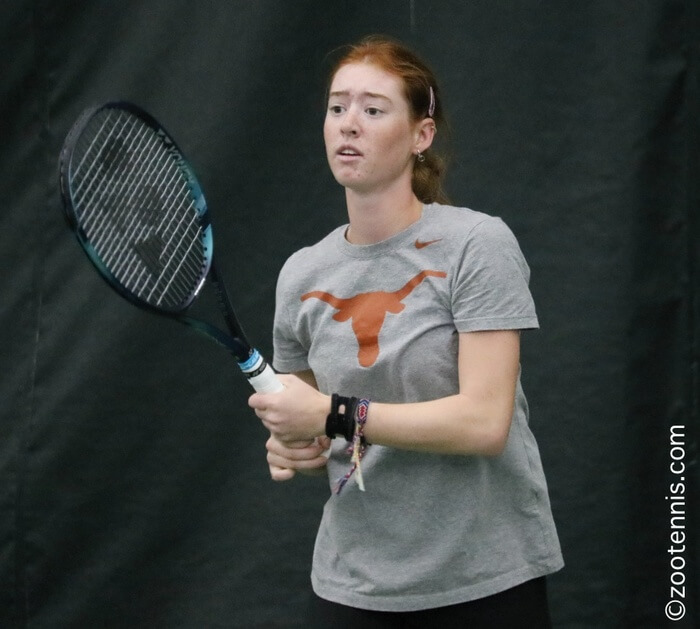Special from
Zoo Tennis
| Share: |  |
|  | |
|
|
(Editor’s note: Maya Joint decided to forgo college and turn pro on Dec. 26, 2024)
Six months after the University of Texas women had claimed their second consecutive NCAA team title in 2022, blue chip junior Maya Joint verbally committed to the Longhorns. More than two years later, despite a current WTA ranking of 118 and nearly $300,000 in prize money earned, the 18-year-old from Grosse Pointe, Michigan remains steadfastly focused on bringing another NCAA team title back to Austin in the spring.

Maya Joint is a Freshman at Texas
© Zoo Tennis
After reaching a career high of 20 in the ITF Junior Circuit rankings at the beginning of this year, Joint's focus turned to improving her WTA ranking. With a record of 60-27 in professional events, that ranking has gone from 1208 at the end of October 2023 to a recent high of 110, advancing to 13 pro quarterfinals during that span.
Her rapid rise coincides with a decision to spend six months in Australia training with her Australian coach, former University of Tennessee doubles All-American and later Volunteers' assistant coach Chris Mahony. After reaching the final round of qualifying at the 2024 Australian Open, Joint won her first ITF women's World Tennis Tour title in February at a W75 in Australia, then embarked on a demanding travel schedule in the United States and Europe, which saw her thrive on both clay and hard courts.